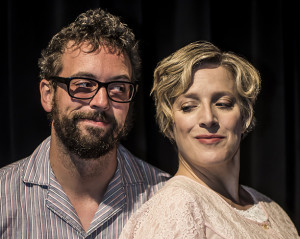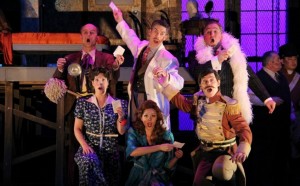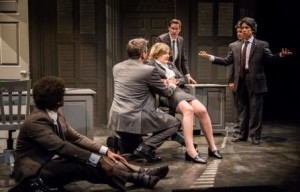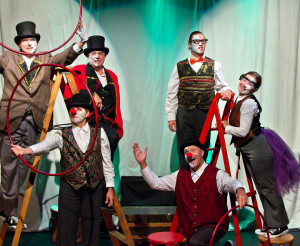Vanya and Sonia and Masha and Spike: A weak script and messy directing offer up few laughs
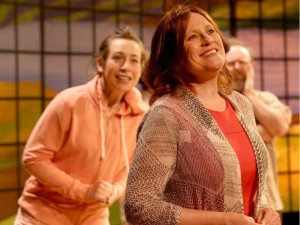
Vanya and Sonia and Masha and Spike
By Christopher Durang
Plosive Productions
Directed by David Whiteley
Reviewed by Rajka Stefanovska
Christopher Ferdinand Durang is a playwright whose works, written in the style of absurd comedy, deal with issues such as homosexuality, child abuse and Roman Catholic dogma and culture. While his Brodway commercial success Vanya and Sonia and Masha and Spike is still a comedy, his signature element – absurdity – is definitely missing. The story about three middle aged single siblings, whose lives are full of insecurities, futility and unfulfilled dreams, is suppose to tell us about alienation and the meaningless of today’s society. Although the message is an undeniable truth, the way it is told comes off a bit mild, naïve and too obvious. Its combination of superficial comedic elements, too many quotations from Chekov and a long monologue about numerous old American shows (which makes the play rather local – Durang is performed worldwide) gives the audience enough to laugh at, but certainly not a lot to think about. …




